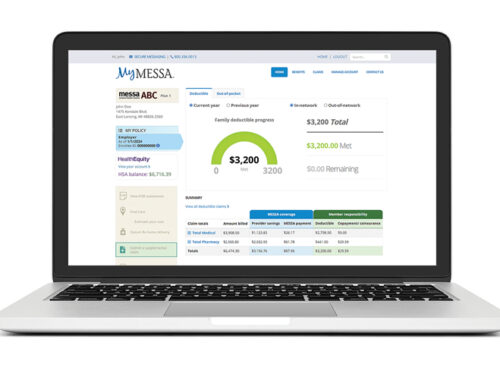Happy holidays?
How to cope when it doesn’t feel like the most wonderful time of the year
Looking out the living room picture window, you can see the snow gently falling from the night sky, blanketing everything in a fluffy white sheet that glows softly in the moonlight. The aroma of baking cookies fills the air, cinnamon and sugar fragrances wafting from room to room. Holiday music plays in the background.
As Andy Williams crooned, it’s the most wonderful time of the year.
Well, that’s the expectation, anyway. The reality is that the holidays can be difficult, particularly for people who have depression.
A survey conducted by the National Alliance on Mental Illness, one of the nation’s largest mental health organizations, found that 75% of people have felt “sad” or “dissatisfied” during the holiday season. Among NAMI’s other findings:
- 68% of respondents reported having felt “financially strained” during the holidays.
- 66% have felt lonely.
- 63% have felt too much pressure.
- 55% of people found themselves longing for “happier times.”
Among those who reported having a long-term mental illness, 64% of people said the holidays made their condition worse, with 24% saying the holidays made their illness “a lot worse.”
“The holiday season beams a spotlight on everything that is difficult about living with depression,” one female NAMI survey respondent said. “The pressure to be joyful and social is tenfold.”
Ken Duckworth, NAMI’s medical director, said the survey shows “a tremendous need for people to reach out and watch out for each other in keeping with the spirit of the season.”
If you’re among those whose holidays are less-than-joyful, mental health experts say there are many tactics you can use to minimize your stress and potentially enjoy the holidays more than you thought possible. The following tips have been curated from NAMI, Mayo Clinic and MESSA’s team of specialty nurses.
Don’t try to force happiness. It’s normal to experience sadness or grief. Be honest with yourself and acknowledge your feelings. Don’t be afraid to cry.
Set realistic expectations. Especially in the age of COVID-19, it’s near impossible to recreate the holidays of yesteryear. Look back fondly on those memories, but don’t idealize them. Instead, create new memories, traditions and rituals.
Make a plan. Schedule specific days for baking, shopping, gift-wrapping and other things you need to accomplish. Plan out as much as possible to reduce your chances of feeling stressed and stretched for time.
Set a budget and stick to it. Remember: The holidays aren’t about how much money you spend on others or what material gifts you receive. Just like you can’t force happiness, you can’t buy it, either, so there’s no sense in overextending your finances and creating additional stress.
Don’t overindulge. Binging on slices of pie or soft cookies feels good for a minute — maybe even an hour — but overdoing the fatty foods and empty calories can harm your physical and mental health. “The more sugar you consume, the more you crave — so it turns into a vicious cycle,” explains Rachelle Twichell, MESSA’s diabetes nurse educator. Instead, have a healthy snack not long before sitting down to a holiday meal. That will leave a little less room for less-healthful foods, sweets and drinks.
Get moving. Try to incorporate more physical activities into your routine. Exercise can do wonders for your mental well-being. It’s best to schedule a regular time to work out, but if you find yourself short on time, at the very least get moving for 10 minutes a day. You’ll fall asleep faster at night, get higher-quality sleep and have more energy — physical and mental — to take on the next day.
Put yourself first. This may seem counterintuitive given how many times we’re told that selflessness is a virtue, but the fact is that unless you take care of yourself first, you can’t be of much help to others. Take some “you time,” even if it’s just 15 minutes to clear your mind and reduce your stress. You may find yourself better equipped to deal with whatever tasks lie ahead.
Practice gratitude. Write a list at bedtime of at least five things you’re grateful for, suggests MESSA Health Promotion Consultant Rhonda Jones. “This practice can help bring your focus away from any stress or negativity you experienced that day, as well as worries you have about the future,” she says. “Then when you wake up in the morning, grab your list and start the new day with gratitude.”
Take advantage of MyStressTools. MESSA members have free access to this suite of stress management resources. It uses a “Stress Profiler” to identify your sources of stress and anxiety and then provides you with information and strategies tailored to your specific needs. Log in to your MyMESSA member account, select Wellness Resources in the left menu, then select MyStressTools to get started.






